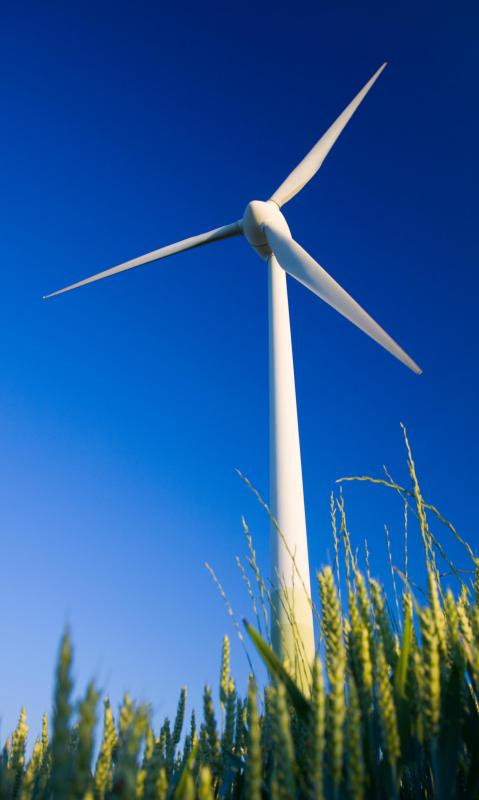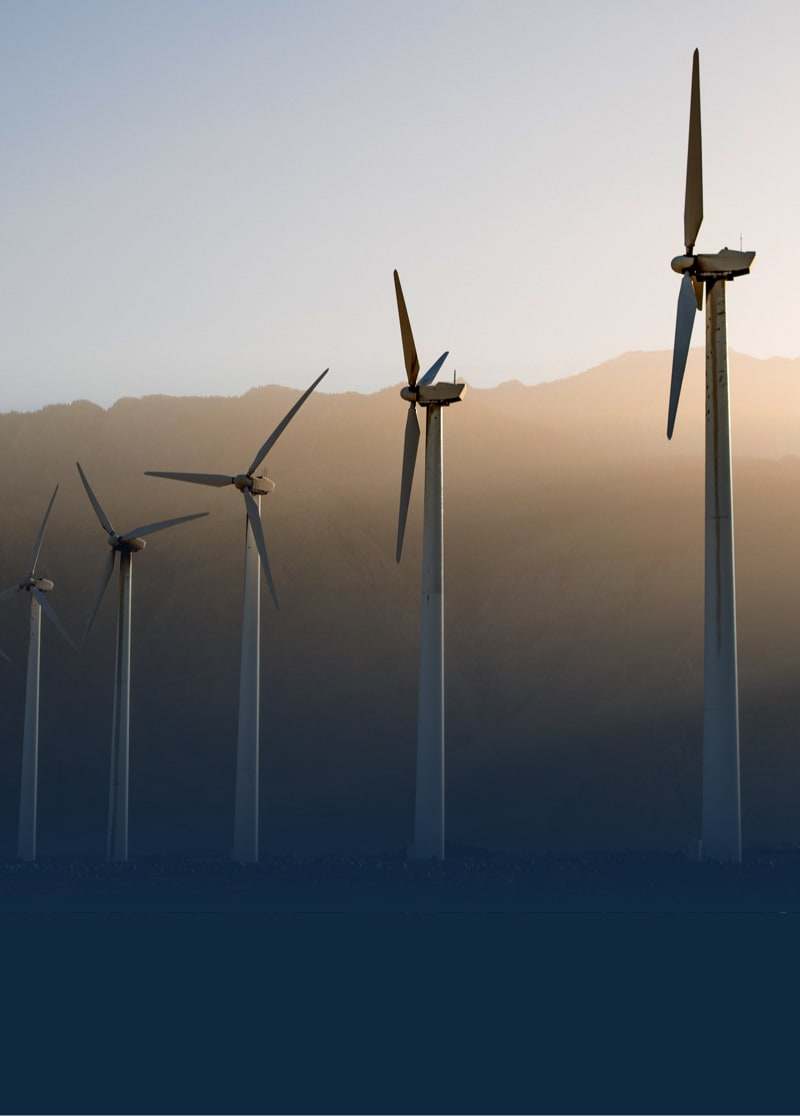Want to
Power
Your Business by Renewable Energy?
All our tariffs are backed by renewable energy. If you choose to switch to us, you could play your part now in achieving the green target.
What’s Renewable Energy?

Energy is said to be renewable when it’s sourced from renewable resources such as the sun, wind, water, or biomass. Renewable energy does not use fossil fuels, coal, or gas, but rather natural resources that can be replenished within the human lifetime.
These Countries are Leading the Charge to Renewable Energy
The Earth is edging ever closer to a point of no return, with a joint statement issued during the COP24 climate conference calling for “decisive action” on climate change within the next two years.
Most nations have taken on the challenge to switch from a reliance on fossil fuels to a sustainable energy system – some faster than others.
A recent Carbon Brief report written by E4tech and Imperial College London and published by Drax has ranked 25 major world economies on their efforts (or lack thereof) in the transition to clean energy.
Clean electricity underpins almost all efforts to shift towards a decarbonized future. In 2017, the global average carbon intensity of electricity was 450 gCO2/kWh. Of the 16 major countries below that average, the United Kingdom showed the fastest transition to decarbonization.

Despite consuming the most electricity per year, China and the United States (6,500 TWh and 4,250 TWh respectively) also reduced their carbon intensities in 2017. Indeed, if they could both match the reductions made by the UK, global emissions would fall by 9%.
Renewable ambitions are limited in part to the generating and storage capacities of each country. In the last decade, an extra 1,125 GW of capacity has been installed worldwide. Germany leads the way, having installed almost 1 kW of renewable capacity per person in the given time period, and ranking 1st and 3rd for solar and wind capacity per person respectively. And Germany’s push towards renewables is part of a wider trend within Europe, with eight of the top 10 countries coming from the region – only Canada (5th) and Australia (10th) are from outside the region.

Saying goodbye to coal
Renewable energy is not a new concept. But during the Industrial Revolution in the 18th and 19th centuries, the use of renewables like wind and water fell by the wayside because they were less efficient than coal and later oil in a world focused on progress.
Since then coal has remained the most polluting fuel for generating electricity. And in order to achieve a future in which we limit global warming to less than 2°C we’ll need to abandon it as an energy source.
In terms of which countries get the lowest percentage of their electricity from coal, Europe leads the way once again, boasting six of the top 10 nations.
Norway sits in first place with 0%. At the other end of the spectrum, three of the six countries at the bottom of the list are from Asia (Indonesia, China and India), although South Africa, which uses coal for almost 90% of its electricity, is placed last among the 25 nations assessed by the report.
When it comes to the transition from coal-based electricity production in the last decade, the pattern follows a similar trend to the change in carbon content; the UK and Denmark are ahead of the field. But the USA and China are making progress – both are in the top five, with 18% and 14% decreases respectively.

The rise of EVs
At an individual level, as more people attempt to reduce their carbon footprints global sales of electric vehicles (EVs) are rising rapidly. Over 4.5 million electric vehicles are on the road, 1.2 million of which were purchased in 2017.

In total figures, China leads the way with over 2 million EVs on the roads, as well as 150,000 charging points. The US takes second place with 1 million, which means that China and the US alone make up almost three-quarters of the worldwide EV market.
India, Indonesia, and China are responsible for the three largest increases in energy intensity of transport, with China topping out at 75%. Despite this, China and Indonesia also top the list of countries with the biggest percentage change in energy intensity of their industries, seeing a 30% drop within the last decade.

As technology and public interest evolve, more governments are taking the advantageous steps of implementing energy efficiency policies in addition to improving renewable capacity and decarbonizing electricity generation.
But it’s clear the world still has a long way to go to achieve the targets set out in the Paris Agreement. Climate scientists estimate that if we don’t take drastic action to curb global warming before 2035 it’s unlikely that we will be able to limit global temperature rise to under 2C.

Want to Become an Expert in Renewable Energy?
When it comes to reducing carbon emissions across the economy, switching to low carbon energy is one of the most important changes a business can make.
Why do businesses need to keep pace with developments?
- Businesses play a leading role in all aspects of our lives from manufacturing and transport to food supply and entertainment. And each business process has an embodied energy.
- As of today, the transport and heavy industries sectors tend to be the biggest users of energy — and therefore the biggest greenhouse emitters. But to be successful in our ambition to reach net zero, as a business community we need to reconsider the carbon in everything we consume.
Is your business ready to switch to renewable energy?
- It depends on your business. For some, it’s as simple as changing your supplier to a renewable energy provider. For others, particularly those in the Energy, Resources & Industrials sectors, a more tailored approach is needed with the signing of Power Purchase Agreements or developing your own renewable generation.
- Right now, decarbonising will be easiest for businesses whose processes can be done through electrification. But where there is no alternative to hydrocarbons, switching will be harder. However, breakthrough developments are happening at pace.
How can you approach the switch to Renewable Energy?
Estimate your emissions
Understanding your areas of carbon consumption will help you to create a more impactful plan, provide focus and above all generate the most value for your business over the long term.
Make the no regrets moves
You could make sure your buildings are consuming clean energy, or are as energy efficient and airtight as they can be, equipped with smart systems, including lighting and heating, and use carbon neutral materials where possible.
Settle on a strategy and make sure it is clear
Think about where the first mover advantage would be for your business and make sure you properly consider the implications and risks of not transitioning sooner.
How We Can Help You
- Cut your electricity bills: Once you’ve paid for the costs of installing a renewable energy system, you can become less reliant on the National Grid and your energy bills can be reduced. Air source heat pumps can be a great alternative to a gas boiler.
- Get paid for the electricity you generate: The UK Government’s Feed-in Tariff pays you for the electricity you generate, even if you use it.
- Sell electricity back to the grid: If you are generating enough energy to export an excess back into the National Grid, you can receive an additional payment from the Feed-in Tariff scheme.
- Drive electric: Did you know our EV tariffs are not only cost-effective but also renewable? Have a look at our electric car tariffs.
- Reduce your carbon footprint: Green, renewable sources of energy don’t release carbon dioxide or other harmful pollutants into the atmosphere. According to the Energy Saving Trust’s Solar panels page, a typical solar PV system could save around 1.5 – 2 tonnes of carbon per year. You can find out more in our solar panels guide.
Renewable Energy Efficiency
Find out everything about us whose business that’s entirely dedicated to generating renewable energy.





I learned a lot of new knowledge because of the unique and trendy theme.
Blog style, green and environmental protection, very good design!
I’m glad you can get something from here. Thank you very much for your comments!
Very informative blog and easy to understand.
Thank you for your comment and I’m happy you can understand the green topic.
An informative read! I think if everyone uses less electricity, it will help save a lot!
Thank you for your comment and feedback!
This is a very interesting and informative blog! We all need to use renewable energy, in order to save our planet! Well done Ao!
Much appreciate for your opinion on renewable energy, Stalo!